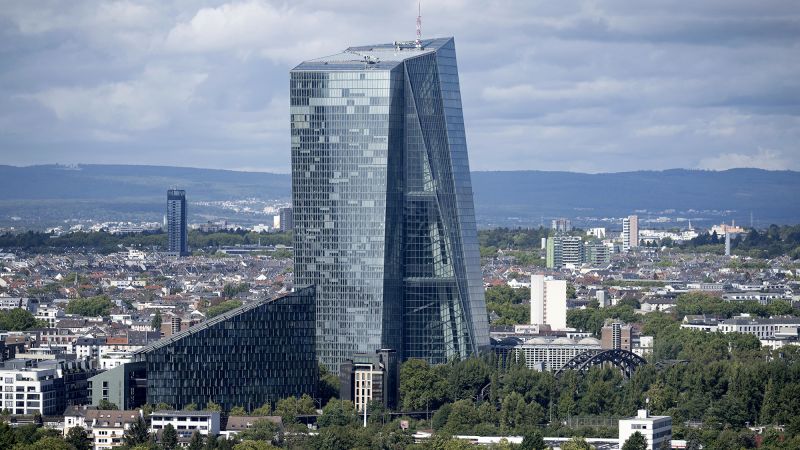The European Central Bank (ECB) cut interest rates Thursday, lowering borrowing costs for the second time in recent months as inflation slows and Europe’s economy stumbles.
The widely anticipated move takes the benchmark rate in the 20 countries that use the euro to 3.5%, from 3.75% previously.
The ECB cut rates for the first time in five years in June, but kept them unchanged at its last meeting in July. Inflation has since fallen further, dropping to 2.2% in August, its lowest level in three years and close to the central bank’s 2% target. Wage growth, keenly watched by ECB officials, also eased in the second quarter.
The central bank said in a statement that recent inflation data was “broadly as expected” and held its inflation forecast for this year at 2.5%, as predicted in June. However, it marginally downgraded the outlook for economic growth in the eurozone to 0.8%, from 0.9% projected in June.
“Financing conditions remain restrictive, and economic activity is still subdued, reflecting weak private consumption and investment,” the ECB said.
Fears about the region’s economy are resurfacing after it only narrowly avoided a recession last year. Although growth has returned, it slowed in the latest, April-to-June quarter. Worryingly, output in the eurozone’s biggest economy, Germany, shrank unexpectedly during that period.
An uptick in activity in Europe’s services sector last month, helped by the Olympic and Paralympic Games in Paris, could prove short-lived.
A recent survey of manufacturing and services businesses highlighted “economic fragility across the euro area as new orders, employment and business confidence deteriorated,” according to S&P Global and Hamburg Commercial Bank.
“Overall, the second half of the year is set to be one of sluggish growth,” ING senior economist Bert Colijn wrote in a recent note.
Investors and analysts will hope for guidance on the future path of interest rates during ECB President Christine Lagarde’s press conference, which started at 08:45 a.m. ET.
Earlier this week, former ECB chief Mario Draghi said in a report that slowing economic growth and productivity present an “existential challenge” to Europe.
He also warned that the region is falling behind the United States and China on innovation, especially in advanced technologies. To make the European Union’s economy more competitive, he said, investment in the EU needs to rise by about €750 billion-€800 billion ($826 billion-$882 billion) a year.
“Delivering this increase would require the EU’s investment share to jump from around 22% of GDP today to around 27%, reversing a multi-decade decline across most large EU economies,” Draghi wrote.
This is a developing story and will be updated.
Read the full article here




